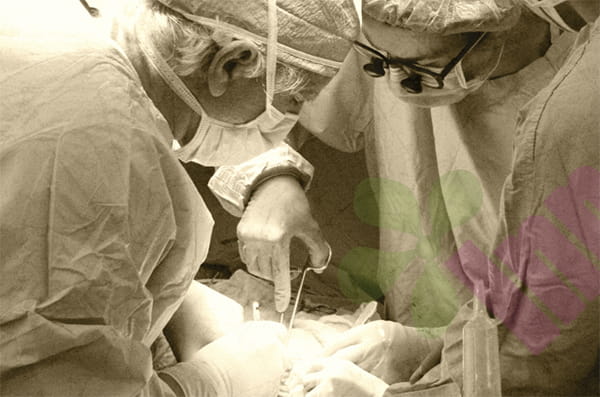Surgical infection refers to the infection caused by bacteria, viruses, and other microorganisms invading wounds or internal tissues during surgical operations. Surgical infection will pose a serious threat to the health of patients, therefore, it is very important to reduce the risk of surgical infection. This article describes the causes of surgical infection and recommendations for good quality care.
Causes of surgical infection :
1. Age factor. Age is a common factor leading to wound infections in patients. As people age, their body functions will gradually decline, and their autoimmunity will also decrease, resulting in an increase in the probability of infection. At the same time, wounds in older patients heal more slowly, which increases the risk of infection over time.
2. Wound depth factor. The deeper the surgical wound, the more difficult it is to debride the patient. In addition, the deeper the wound, the greater the probability of bleeding, and it is difficult to completely debride the wound for the patient, resulting in a higher probability of wound infection.
3. Surgical site factors. For extremity surgery, poor blood circulation in the distal extremities of the human body will greatly affect the postoperative wound healing speed of the patient. If the wound is not healed for a long time, the probability of wound infection will inevitably increase. In addition, the limbs belong to the main limbs of the human body that are in contact with things. If self-protection is not done well, wound infection will easily occur once contact with bacteria.
4. Patients with infection foci before surgery
Patients may have infection foci before surgery, such as sinusitis, periodontitis, etc. These infection foci can provide a breeding environment for bacteria. If no effective treatment is carried out before surgery, bacteria can easily enter the wound and cause infection during the operation.
5. Infection factors during the operation
During the operation, doctors and nurses need to touch the patient's body and use surgical instruments and surgical sheets. Bacteria may exist in these items. If strict disinfection measures are not taken during the operation, bacteria can easily enter the wound and cause infection.
6. Patients with low immunity
Patients may have a compromised immune system before or after surgery, such as cancer, AIDS, and other diseases. The immune system of these patients is weakened and cannot effectively resist the invasion of bacteria and viruses, resulting in infection.
For postoperative wound care :
1. Maintain a balanced diet
Patients need adequate nutrition to facilitate recovery after surgery. Doctors can provide patients with appropriate dietary advice, and patients also need to pay attention to hygiene and a variety of diets to meet the nutritional needs of the body.
2. Apply functional wound dressings to wounds
Silver Ion Dressing can be used. Silver is a natural antibacterial substance that can inhibit the growth and reproduction of bacteria, thereby reducing the risk of wound infection. It also stimulates nerve endings, which produce an analgesic effect that helps reduce wound pain. And can promote cell proliferation and differentiation, thereby accelerating wound healing. It can inhibit the growth of bacteria, thereby reducing the risk of infection and helping to keep the wound sterile.
3. Get a good rest
Patients need adequate rest after surgery to help the body recover. Nurses can provide patients with a comfortable rest environment and guide patients to perform appropriate bed exercises to promote physical recovery.
4. Cooperate with the doctor's treatment
The doctor will provide treatment suggestions for the patient according to the specific conditions of the patient. The patient needs to actively cooperate with the doctor's treatment, and take medicine and injections on time, so as to promote the recovery of the body.
Summary :
Surgical infection is an important complication in surgery. Doctors and nurses take a series of measures, and patients cooperate with high-quality care, which can effectively reduce the risk of surgical infection, ensure the health of patients, and improve the effectiveness of surgery.
For more information on Innomed® Silver Ion Dressing, refer to the previous articles. If you have customized needs, you are welcome to contact us; we will serve you wholeheartedly. At Longterm Medical, we transform this data by innovating and developing products that make life easier for those who need loving care.
Editor: kiki Jia
Date: May 22, 2023

 English
English عربى
عربى Español
Español русский
русский 中文简体
中文简体








